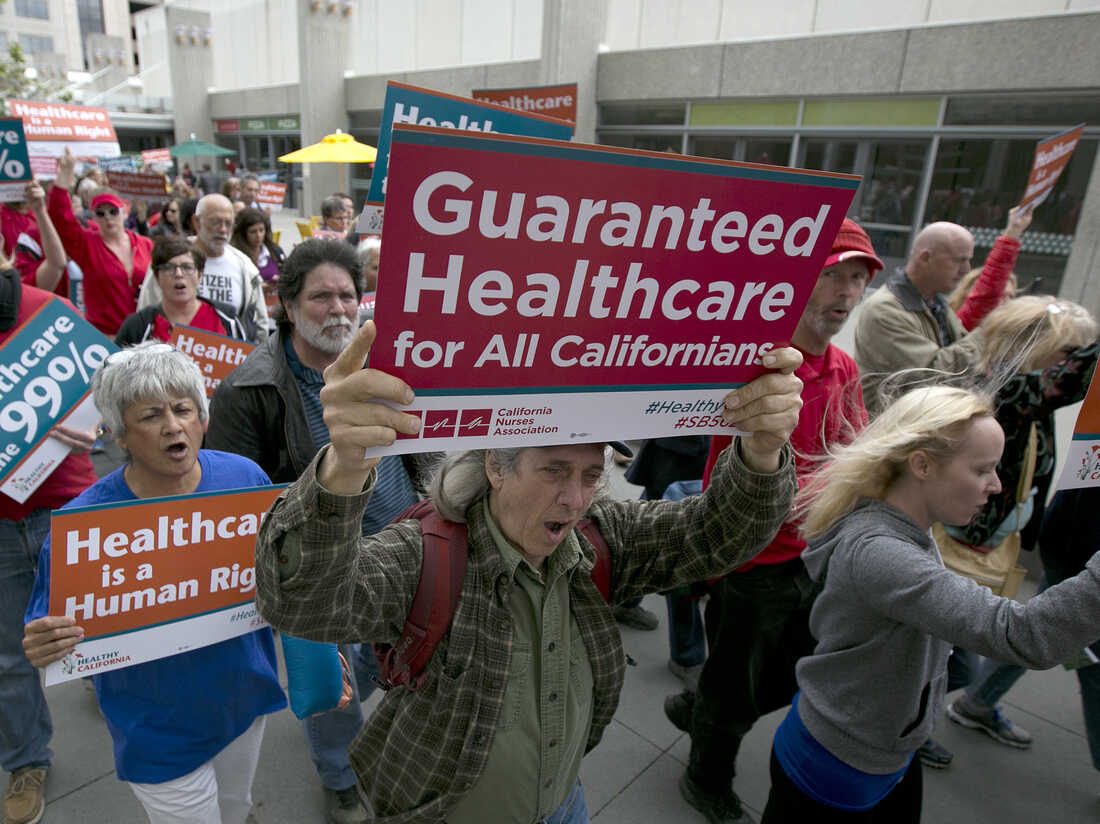CBS
February 1, 2022
-CBS
SACRAMENTO, Calif. — A bill that would have created the nation’s only government-funded universal health care system died in the California Assembly on Monday as Democrats could not gather enough support to bring it for a vote ahead of a legislative deadline.
The bill had to pass by midnight on Monday to have a chance at becoming law this year. Democrats needed 41 votes for that to happen, a threshold that did not seem impossible given that they control 56 of the 80 seats in the state Assembly and universal health care has long been a priority for the party.
But intense lobbying from business groups put pressure on more moderate Democrats, who face tough reelection campaigns this year in newly-redrawn districts. Plus, Democrats were missing four lawmakers from their caucus — including three of their more liberal members — who had resigned recently to take other jobs.
“Especially with four democratic vacancies in the Assembly, the votes were not there today, but we will not give up,” Assemblymember Ash Kalra, a Democrat from San Jose and the bill’s author, said in a news release.
Kalra’s decision not to bring the bill up for a vote incensed his allies in the California Nurses Association, who have been pushing for this bill for years — including campaigning heavily for Democratic Gov. Gavin Newsom’s 2018 election. While Kalra had authored the bill and gotten it out of two legislative committees to reach the Assembly floor, the Nurses Association said in a statement they were “outraged that Kalra chose to just give up on patients across the state.”
Progressives have dreamed about a universal health care system in the U.S. for decades. Health care is so expensive, they say, in part because the nation’s health care system is paid for by multiple parties, including patients, insurance companies, employers and the government. Instead, they say the U.S. health care system should have a single payer — the government — that would keep prices under control and make health care available to all.
But while other nations have adopted such systems, it’s been impossible to establish in the United States. Vermont enacted the nation’s first such system in 2011, but later abandoned it because it would have cost too much.
In California, voters overwhelmingly rejected a universal health care system in a 1994 ballot initiative. Former Republican Gov. Arnold Schwarzenegger twice vetoed similar legislation in the 2000s. And a 2017 proposal stalled in the state Assembly.
The biggest hurdle is cost. A study of a 2017 proposal for universal health care in California estimated it would cost $331 billion, which is about $356 billion today when adjusted for inflation. Meanwhile, California is expected to account for about $517 billion in health care spending this year, with the largest chunk coming from employers and households, according to an analysis by a commission established by Gov. Gavin Newsom to study universal health care.
For comparison, California’s entire state operating budget — which pays for things like schools, courts, roads and bridges and other important services — is about $262 billion this year.
To pay for the plan, Democrats had introduced a separate bill that would impose hefty new income taxes on businesses and individuals, which fueled much of the opposition to the plan.
“Today’s vote in the Assembly was a vote to protect their constituents from higher taxes and chaos in our health care system,” said Ned Wigglesworth, spokesperson for Protect California Health Care, a coalition of health care providers opposed to the bill.
Supporters say consumers are already paying exorbitant amounts for health care, saying a single-payer system would save money by eliminating deductibles, copays and expensive monthly insurance premiums.
Both bills are now likely dead for the year. But Kalra appeared to indicate he would try again next year, saying “this is only a pause for the single-payer movement.”
He’ll have to navigate a new Legislature next year following the midterm elections that will see lots of turnover in the state Assembly because of term limits. Assembly Speaker Anthony Rendon, a Democrat from the Los Angeles area who will be termed out in 2024, said he was “deeply disappointed” Kalra did not call the bill for a vote on Monday.
“I support single-payer and fully intended to vote yes on this bill,” Rendon said. “With time, we will have better and more successful legislation to bring us closer to this goal. I expect more and more of my colleagues to sign on, so we can make California a health care justice leader.”
Republicans, meanwhile, seemed to welcome Democrats’ persistence.
“The fact that a proposal for a government takeover of our state’s entire health care system even made it this far shows just how out of touch the Democratic party is from the needs of everyday Californians,” Assembly Republican Leader Marie Waldron said.




